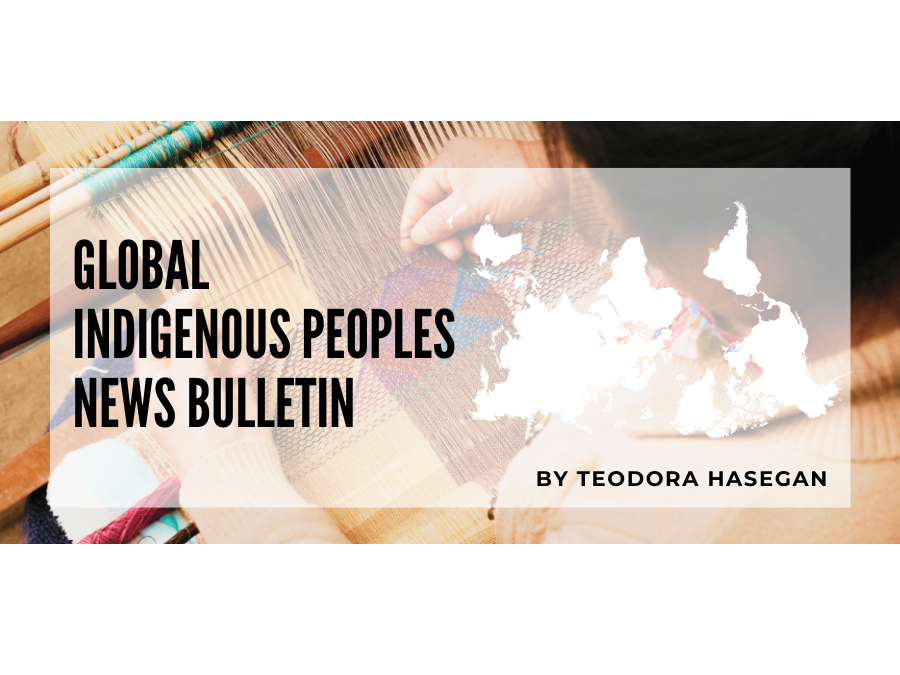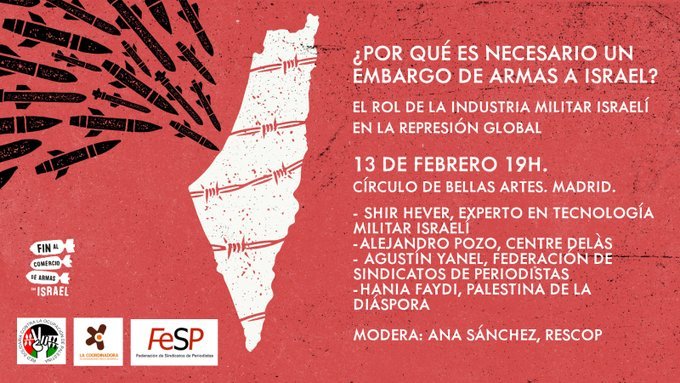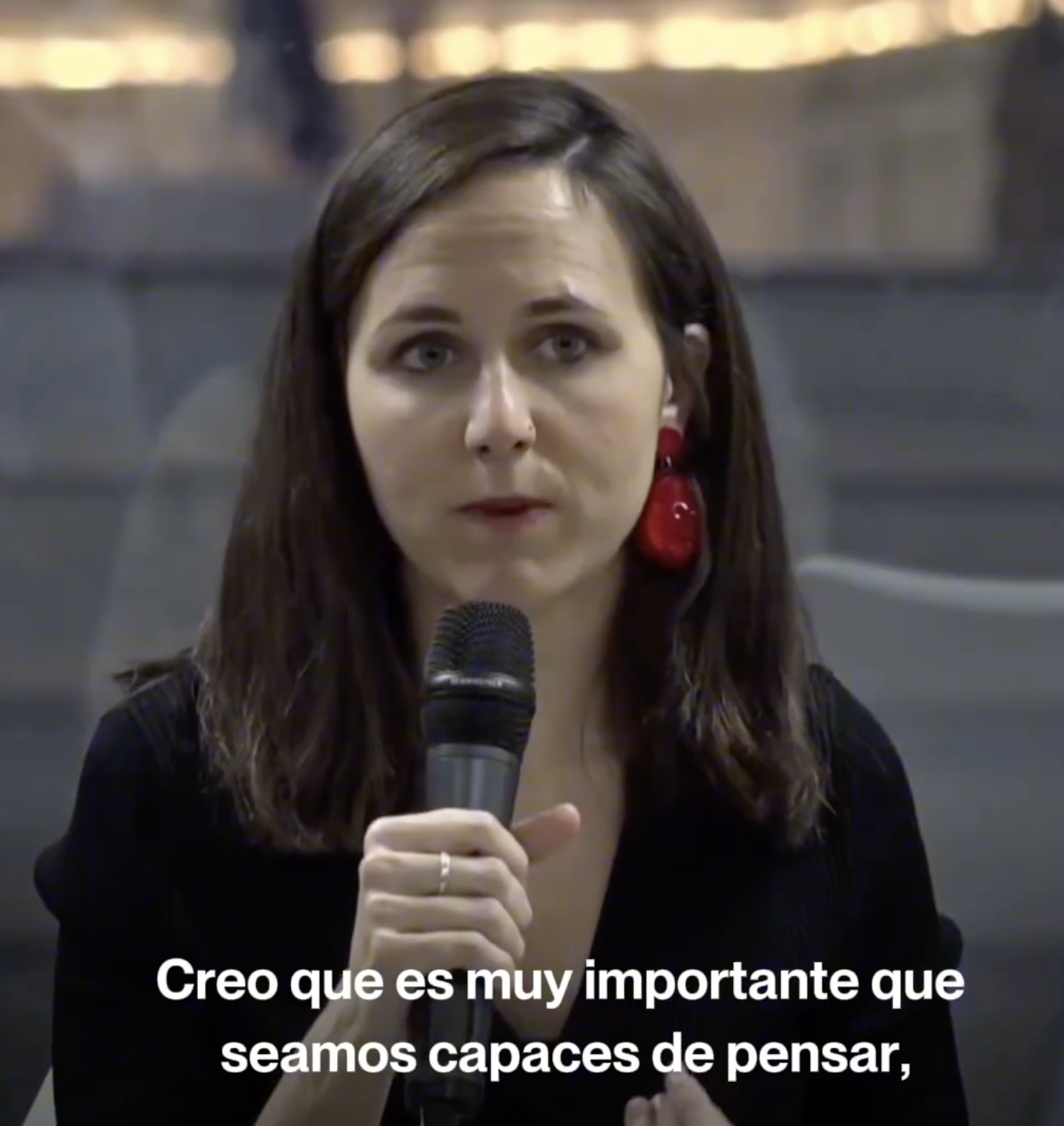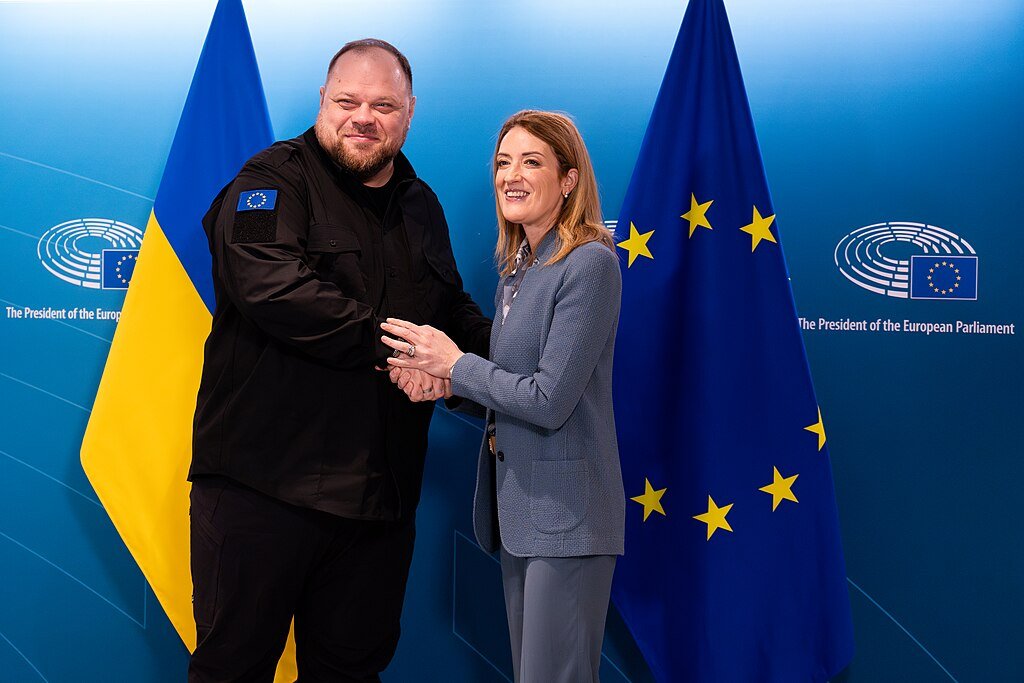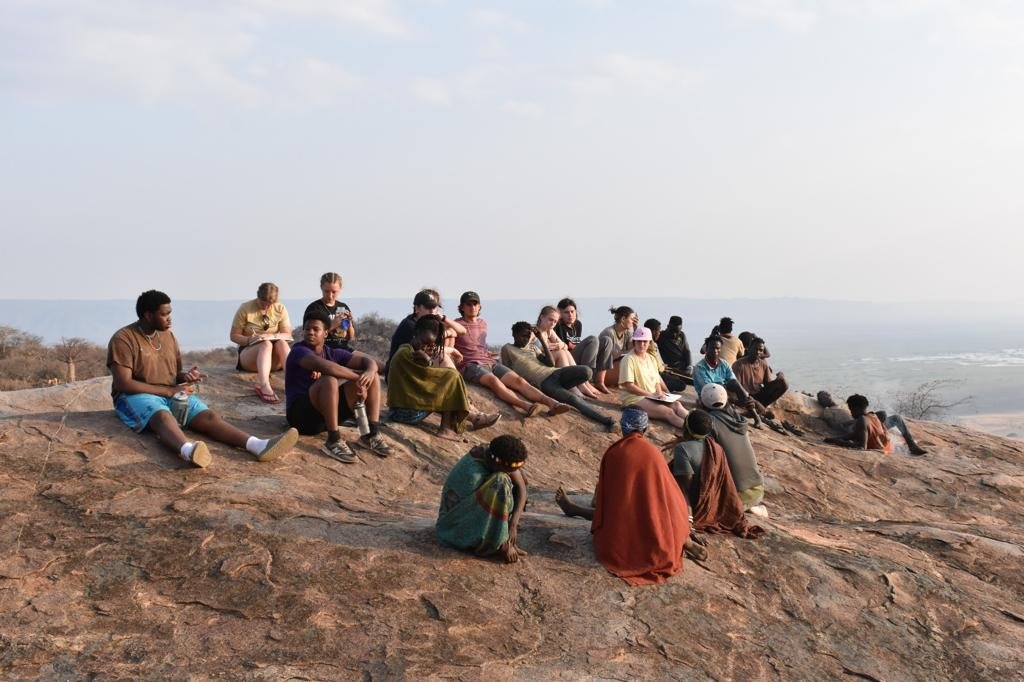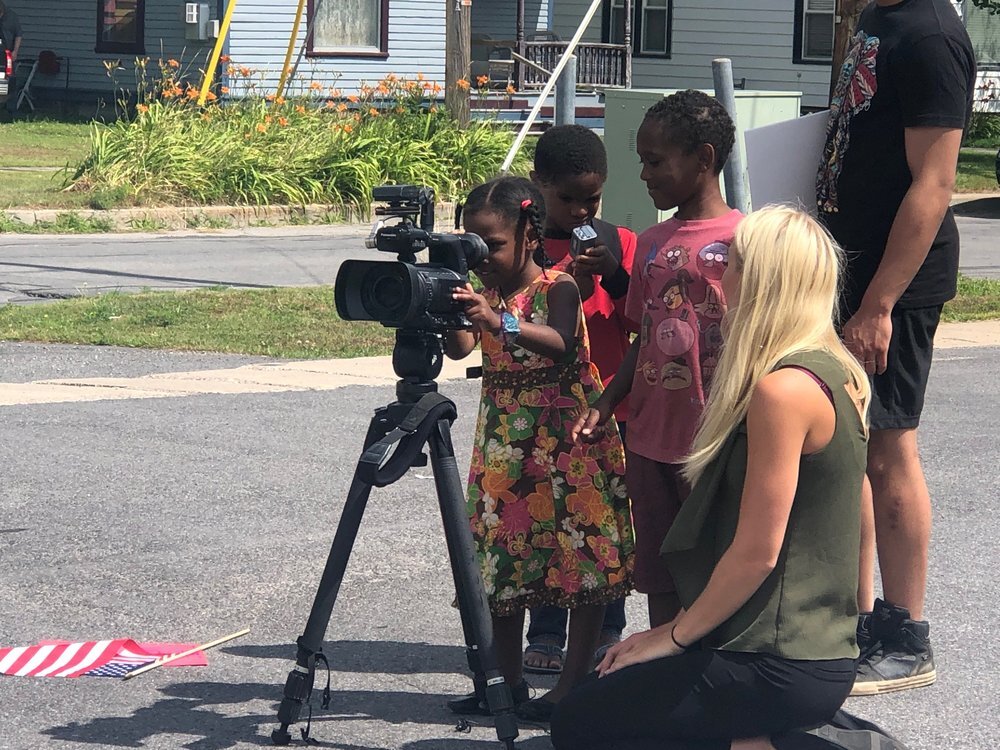
Stories
News

Analysis
Voices
Podcast
Announcements
Events

All Stories
The Pain of Waiting
By Karama Fadel
Despite the long coastline and the existence of seven crossings between its territory and Israel and Egypt, the Gaza Strip remains cocooned in a zone of isolation due to its neighbors’ punitive restrictions. Ships are not allowed by Israel to enter or leave, the lone airport was bombed in 2000, and no one may visit or exit by land without obtaining rarely given permission from the two countries’ military authorities...Thus, for Palestinians, trying to travel is arduous, slow and humiliating. But necessity knows no law, and we keep trying. Why? It’s about living with dignity and in peace. It’s about freedom. It’s about the health of our loved ones, uniting our families, studying for advanced degrees not available inside Gaza. There are multiple reasons why we insist on trying to travel, but the same ultimate goal.
Covering the Margins, Part III: Racial Normalization in Buffalo
By Kali Villarosa
In the third installment of her Covering the Margins project, supported by a fellowship from the NY6 Upstate-Global Collective, Kali Villarosa takes a close look at news coverage of problems affecting African American communities on Buffalo's East Side. She finds a significant difference between the coverage provided by the city's two most influential news outlets (WBFO and The Buffalo News, respectively), on the one hand, and the city's African American newspaper (The Challenger Community News), on the other. The latter outlet, she argues, "stands as the guide for what should be incorporated into the more mainstream outlets and also points us toward the realization that individuals themselves must question their news sources, their content, and the impact of these coverage patterns on their city."
'We Are Taught to Find Enemies': A Conversation with Peace & Justice Activist Jack Gilroy
By Chloe McElligott
Weave News correspondent Chloe McElligott speaks with Jack Gilroy, a Veterans for Peace member whose lifelong journey of social justice activism has taken him from military service to self-imposed exile in Australia to campaigns against militarism throughout the United States. Situating himself within the tradition of radical Catholic antiwar organizing, Jack finds hope in the "search for young people who are individuals with a sense of true justice, have a sense of morality, who are not on an ego-trip, who are not on a power trip, but are more concerned with reaching out with compassion and generosity to the world."
Covering the Margins, Part II: Promoting Buffalo Through Piecemeal Portrayals of Refugee/Immigrant Populations
By Kali Villarosa
In a period of increasing political contention and global displacement, the conversation around refugees, immigration status and documentation/legality has become more prominent within the news media. In the second installment of her Covering the Margins series exploring news coverage of marginalized populations in Buffalo, NY and Ahmedabad, India, Kali Villarosa examines how three news outlets in Buffalo have framed the story of refugee/immigrant populations in order to tell an especially celebratory story about the city itself.
‘War is a Failure’: A Conversation with John Casserly
By Chloe McElligott
It boggles my mind to think that the United States spends so much money and energy on war, a venture that always ultimately leads to destruction and death. Though it is debatable whether war is underreported (obviously, some wars are underreported, depending on who is fighting and dying), I do think the issues of peace movements aren’t discussed enough by the news media. This led to my desire to start interviewing pro-peace/anti-war veterans and creating miniature profiles of them, starting specifically with members of Veterans for Peace. These are people who, at some point, probably saw military service as one of the highest performances of patriotism. Eventually, however, they became disillusioned with the U.S. as a military power, and for me this gives their criticisms of war even more credibility.
Attack on Academia, Part 4: Interview with Melissa Zimdars
By Sarita Farnelli
In November 2016, facing Donald Trump’s impending election, Zimdars created a document to help her students practice analyzing the credibility of various websites claiming to share news. After the list went viral, Zimdars was doxxed by alt-right activists, and quickly received a series of threats. At one point, campus security had to be posted outside her office door.
Weave News 10th Anniversary Conference Presenters
By Nicole Eigbrett
Meet your presenters for the Weave News 10th Anniversary Conference.
A Space to Practice Practicing Space
By Sheila Murray
In her latest report for our Weaving the Streets project, Sheila Murray takes us to Practice Space, an innovative Boston space that focuses on "rigorous self-care" in order to "weave through its locality to strengthen a community."
Covering the Margins, Part 1: From Buffalo to Ahmedabad
By Kali Villarosa
In the first of her series comparing news coverage of urban marginalization, Kali Villarosa introduces us to two cities on opposite sides of the world that share important patterns in how marginalized communities are represented: Buffalo (NY) and Ahmedabad (India).
Attack on Academia, Part 3: Interview with Lisa Durden
By Sarita Farnelli
After appearing on Tucker Carlson Tonight to defend a Black Lives Matter event, Lisa Durden was met with a wave of online harassment and subsequently fired by Essex County College. However, Durden’s side of the story, revealing the lack of due process and communication from the college, indicates deeper problems faced by adjuncts, people of color and women that regularly contribute to similar incidents to her firing, which she described as a “public lynching.”
The Lightning Strike of False Rape Accusations
By Christian Exoo
The chances of being falsely accused of rape are similar to being struck by lightning-- one in a million. So why is the Department of Education meeting with men’s rights activists who perpetuate the myth of false accusations?
Interweaving: Jared Fesler and Chase Palmieri on 'Crowd-Contested Media'
By John Collins
In this installment of our Interweaving project, I speak with two of the founders of Tribeworthy, a new media startup based in northern California. I met Jared Fesler and Chase Palmieri at the 2016 Media Freedom Summit and subsequently integrated the beta version of the Tribeworthy platform into one of my undergraduate classes. They recently launched a new version of the platform.
Attack on Academia, Part 2: Interview with Dana Cloud
By Sarita Farnelli
This is the second installment of Attack on Academia, a series of interviews with academics who have endured sustained campaigns of threats and harassment from the alt-right. The first installment, an interview with Heidi Czerwiec, can be found here.
Forgetting and Remembering Collective Memory in Spain
By Ajok Deng
As a contributor to the Weaving the Streets project, I have been looking into the issue of collective memory and the reconstruction of identities in post-dictatorship Spain. My first two blog posts focused on Lavapiés, a multicultural neighborhood in Madrid, using street art as a medium for juxtaposing modern-day activities with the history of the Franco dictatorship. This third post focuses on Santander, a city where the present and the past exist simultaneously.
Attack on Academia, Part 1: Interview with Heidi Czerwiec
By Sarita Farnelli
This is the first installment of Attack on Academia, a series of interviews with academics who have endured sustained campaigns of threats and harassment from the alt-right.
Sinaloa, Mexico: Remembering Javier Valdez and Standing for Freedom of Expression
By Savannah Crowley
In her latest post for our Weaving the Streets project, Savannah Crowley reflects on her experience of traveling to Culiacan, Sinaloa (Mexico), to “learn from activists and community leaders on the ground who are building peace in the heart of the Drug War” in the aftermath of the assassination of renowned journalist Javier Valdez.
A Migrant's Story: The Real Human Face of the North Country Dairy Industry (II)
By Julianne DeGuardi
In the second installment of her three-part profile of migrant farm worker Juan Garcia, Weave News reporter Julianne DeGuardi details Juan’s story of moving among a number of different work opportunities in New York, Vermont, and Kentucky. Read Part I.

